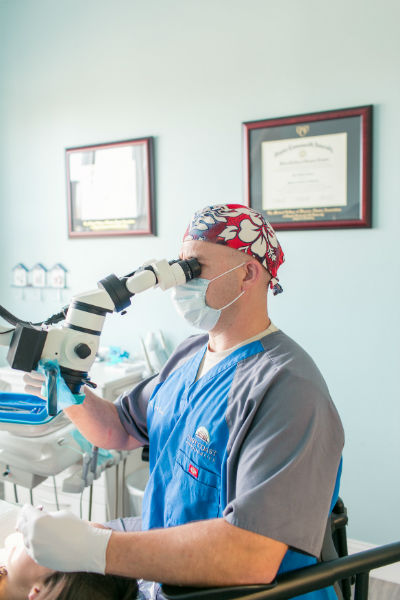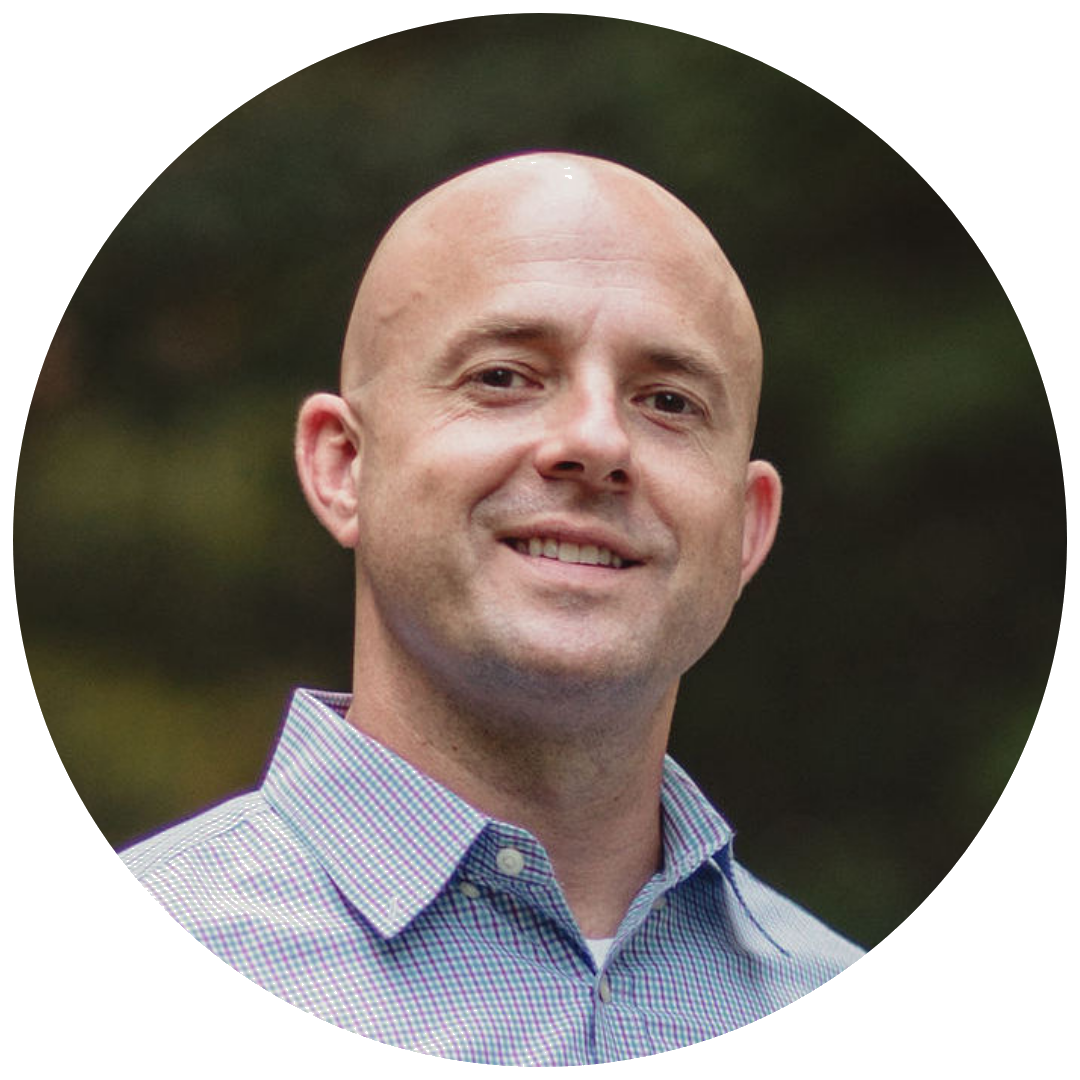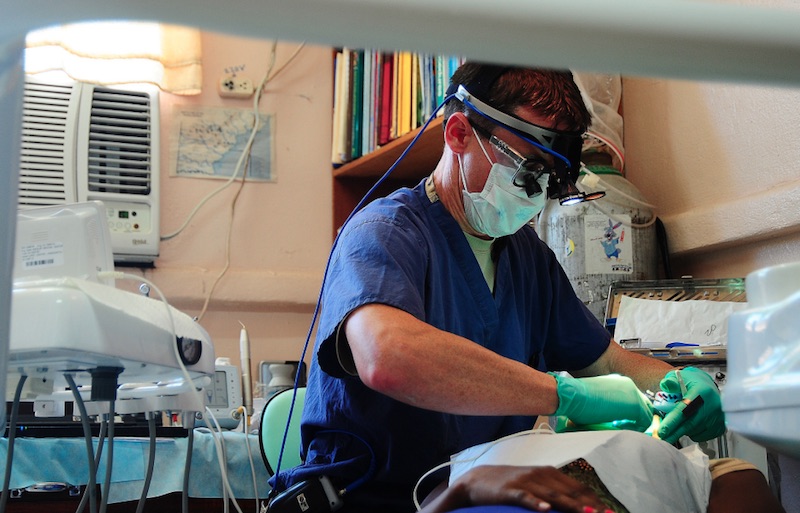
1. Specialization
An endodontist is a dental professional that specializes on treating the interior parts of teeth, often with the goal of preserving natural teeth that have become infected or damaged.
2. Experience
Since they are specialists, you can trust endodontists to be more efficient and experienced. The American Association of Endodontists estimates that the average endodontist completes 25 root canals a week, whereas general dentists only do about 2 a week.
This additional experience means you can feel more confident in the treatment you’re receiving.
3. Education
Becoming an endodontist requires many years of schooling and practicing dentistry. After all, all endodontists are dentists first: to become an endodontist, one must first complete a bachelor’s degree and pass dental school.
The top endodontic training programs, like the one at Virginia Commonwealth University where our own Dr. Harris received his graduate degree in endodontics, only accept applicants with high National Board scores and/or those that performed exceptionally well in dental school. Some accept only a few applicants every year.
Schooling can take between two and five years, depending on the school and program. A thesis or dissertation is often required at the end of any endodontic training program.
4. Technology
In school, endodontists are trained to use specialized equipment, such as operating microscopes, and gain an advanced understanding of biology, anatomy and physiology. This is what makes them specialists at their trade and the preferred doctor for treating damaged or infected teeth.
You can learn more about Dr. Harris’ education and experience here.

About the Author
Dr. Harris has been a practicing dentist since 2005. In 2012, he received his Master’s of Science in Dentistry and a certificate in Endodontics. He founded East Coast Endodontics shortly after receiving his master’s degree. He also currently holds a part-time position as a Clinical Assistant Professor for the Endodontics department at Virginia Commonwealth University. View his full bio.

